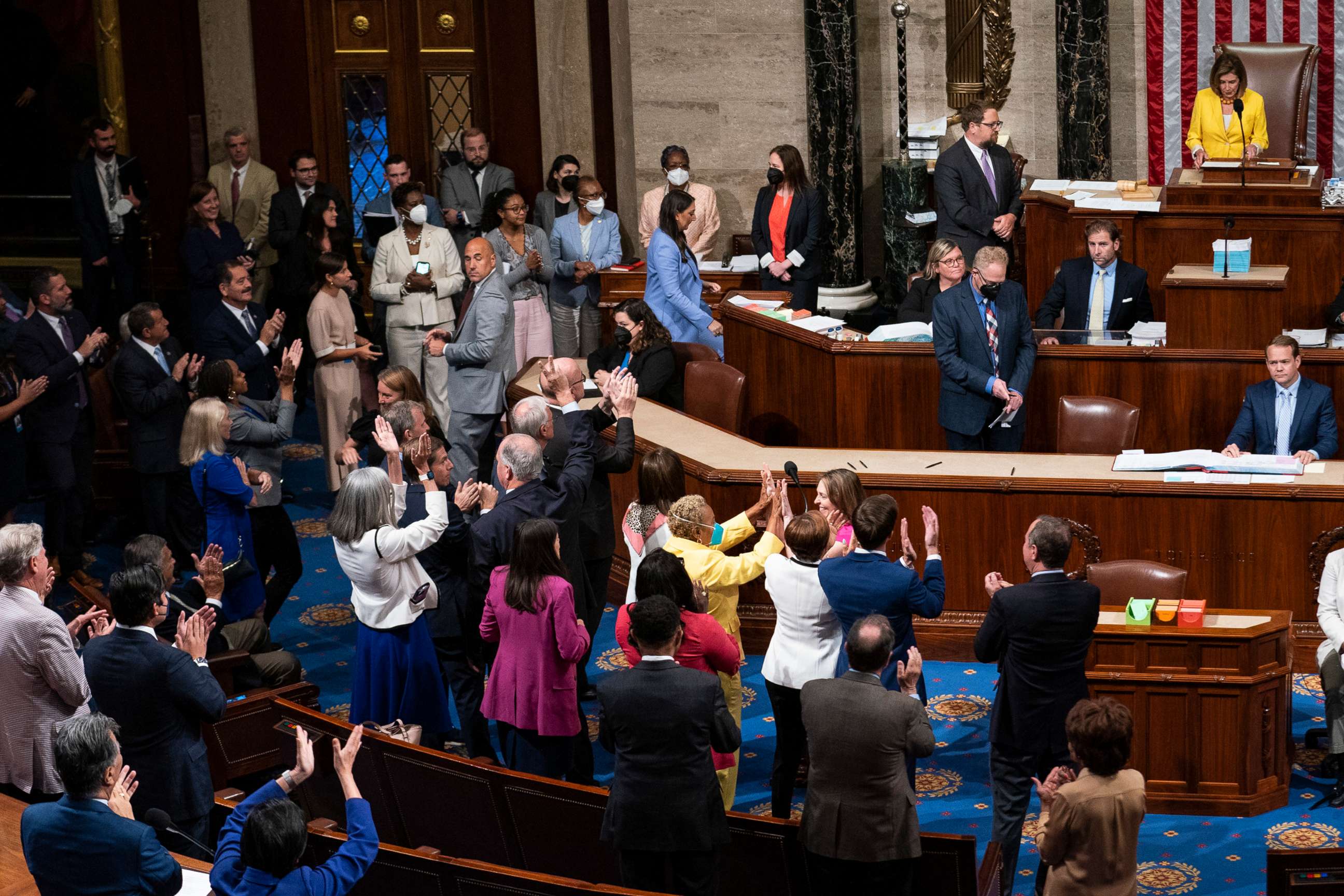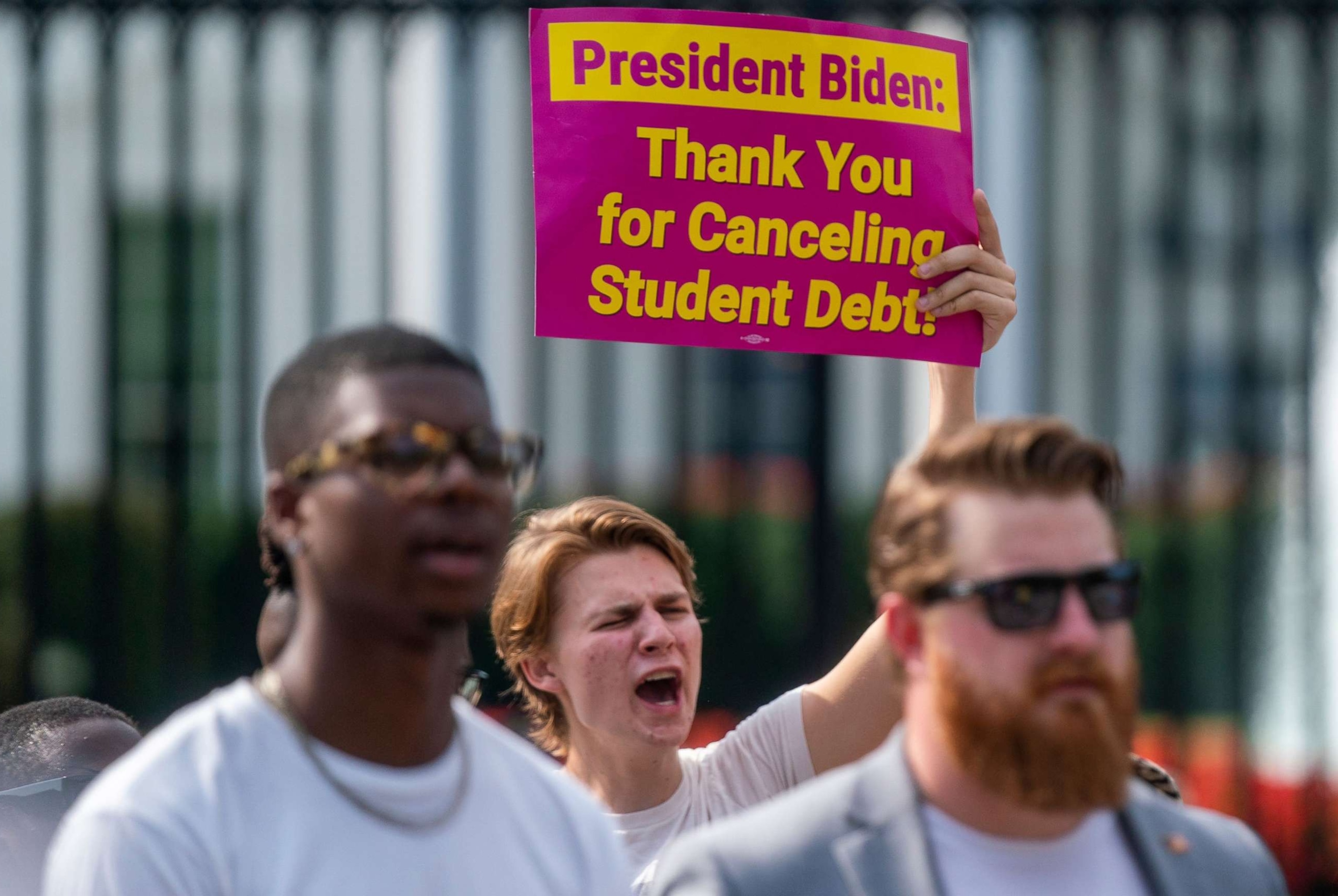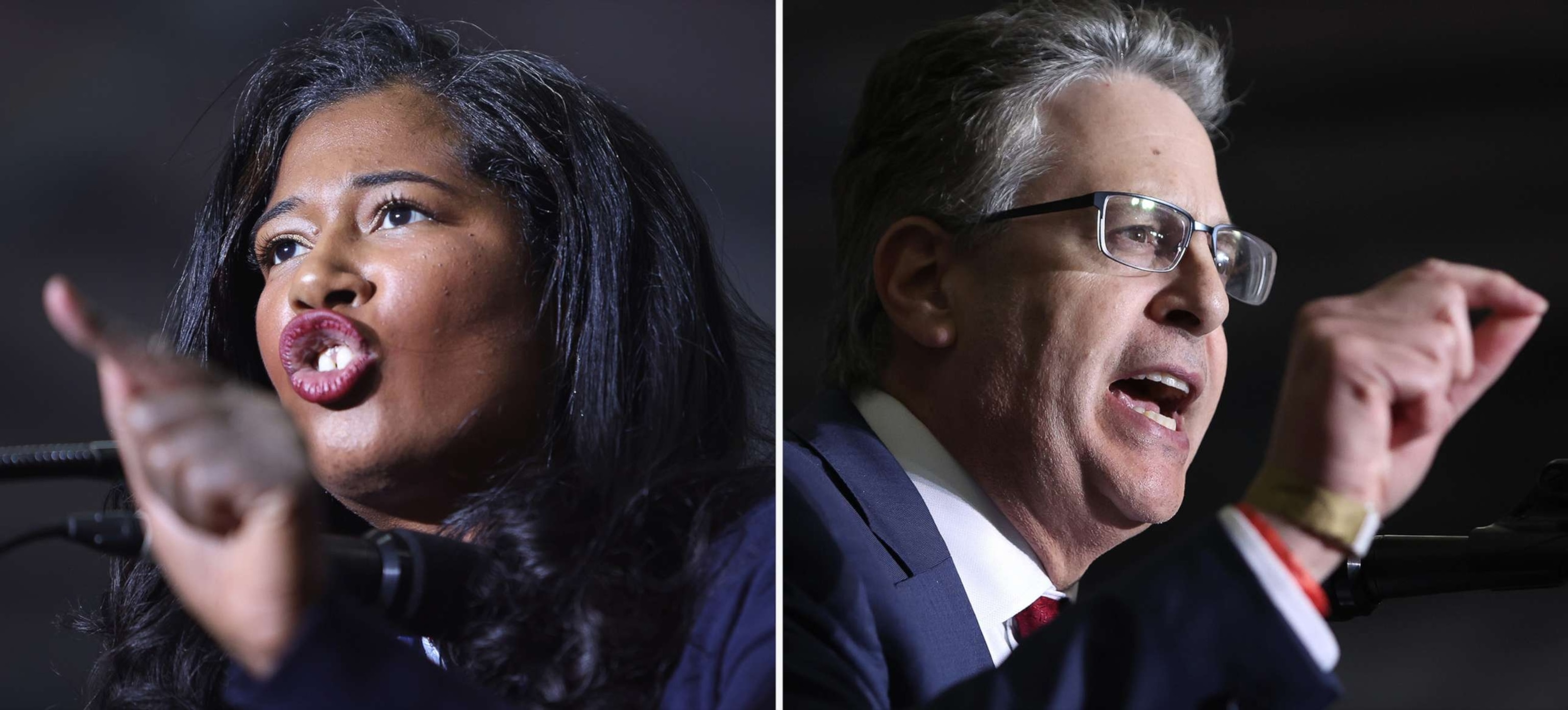Post-Dobbs landscape fuels Democrats' optimism: The Note
Their challenge now is sustaining intensity for 10 weeks before the midterms.
The TAKE with Rick Klein
As an issue, choice on abortion looks more likely than ever to help frame the big choice in this fall's midterms. And even an election that's a referendum could mean different things in different places.
Democrats who have spent much of the past year dreading the election landscape -- and fighting amongst themselves about what can't get done -- now see a markedly better environment.
The Supreme Court ruling in Dobbs v. Jackson Women's Health Organization overturning Roe v. Wade appears to have brought a turnout backlash that's come through in a series of special elections over the past two months. If there might be more to come, Democrats want to be there for it: This week, Michigan is expected to become the biggest battleground to add an abortion-rights referendum to its November ballot.
Campaigning on choice appears to work on its own. Democrats see additional power in placing the issue among the range of areas where voters have recently soured on Republicans -- up to and including threats to democracy that are more relevant the more visible that former President Donald Trump makes himself in the weeks ahead.
Fundraising and voter-registration data points are starting to draw a different portrait of the year than the one initially marked out by strategists. Even President Joe Biden's numbers appear to be on the upswing, as his involvement in the midterms is set to intensify.
As Labor Day approaches, Democrats have succeeded in upending conventional wisdom about the midterms -- no small task given historical trends. Their challenge now is sustaining recent intensity over 10 weeks where a host of other issues are set to intersect.

The RUNDOWN with Averi Harper
As the Biden administration defends its plan to forgive a portion of federal student loan debt, the threat of a legal challenge looms.
The White House has pointed to the HEROES Act of 2003, which allows the secretary of education to waive or modify requirements for financial assistance programs, as legal standing to forgive up to $20,000 of federal loans per borrower.
The law states that those on the receiving end of payment waivers and modifications must have "suffered direct economic hardship as a direct result of a war or other military operation or national emergency." The administration argues that the COVID-19 pandemic is the national emergency that has allowed it to proceed.
Still, opponents, including many Republicans, have insinuated that widespread loan forgiveness may not pass legal muster.
"It's inherently unfair. It's arbitrarily picking a group of individuals and we're arbitrarily going to cancel their debt with the stroke of a pen without going through Congress. That's illegal," Republican New Hampshire Gov. Chris Sununu said on CNN on Sunday.
Those who qualify for the forgiveness will be able to start their application process in October with debt cancellation expected to come four to six weeks afterward, according to the White House, but the possibility of courtroom hurdles could upend that timeline.

The TIP with Paulina Tam
The Michigan Republican Convention in Lansing this weekend started with a bang and ended with a stump speech by an out-of-state governor many people believe has an eye on a presidential bid in 2024.
Cracks within the Republican Party in the state have already been spilling into public view for some time, most notably when a top longtime member of the state's GOP committee resigned in April following victories for Attorney General nominee Matthew DePerno and Secretary of State nominee Kristina Karamo, two Trump-backed candidates who have gained national attention for eyebrow-raising comments and their vocal support for denying the results of the 2020 presidential election, with DePerno now facing criminal charges in a voting machine scheme that Michigan Attorney General Dana Nessel has called a "conspiracy."
Tony Daunt, the now-former committee member of the state's GOP, voiced his frustration with what he says is the current status of his political party, citing "feckless, cowardly" party leaders who have "made the election here in Michigan a test of who is the most cravenly loyal to Donald Trump and relitigating the results of the 2020 cycle."
Daunt's concerns seemingly came into a second public display of division on Saturday at the GOP convention when procedural nomination votes were held back by two hours after a bitter fight between two men who both claim to be the rightful chair of one of the state's largest counties' GOP came to a head.
The Michigan Republican Party has recognized Eric Castiglia as the rightful party chair of Macomb County -- but an alternate slate of Macomb County delegates, led by rival Mark Forton, the county's former GOP leader who is a fierce supporter of Trump and his unproven claims of election fraud, was swapped in last minute on the convention floor after they "booed" and challenged Castiglia's preapproved delegates.
Cheers were also in full swing at the state GOP's "Red Wave Party," which commenced later that evening shortly after the convention, which went nearly five hours over time. Headlining the party was Virginia Gov. Glenn Youngkin, who many speculate will run for president in 2024. Youngkin spent parts of his speech bolstering the resume of Tudor Dixon, the Republican gubernatorial nominee in Michigan, while spending another chunk of time attacking President Joe Biden.

NUMBER OF THE DAY, powered by FiveThirtyEight
82. That's the percentage of nonincumbents former President Trump endorsed in the 2022 primary cycle that won their nomination -- and as FiveThirtyEight's Nathaniel Rakich writes, that's down from both his 2020 (96%) and 2018 (89%) win rates. But at the same time, it's hard to say Trump's hold over the GOP has weakened as in many cases where Trump didn't prevail, a Trumpy candidate still won. Moreover, Trump was pretty effective in ousting incumbents who crossed him: Six out of the 10 incumbents he targeted for defeat lost. Read more from Nathaniel on what we can glean from Trump's endorsements this cycle.
THE PLAYLIST
ABC News' "Start Here" Podcast. "Start Here" begins Monday morning with Georgetown Law professor Mary McCord on what to know from the now-public redacted Mar-a-Lago affidavit. Then ABC's Alexis Christoforous breaks down Fed Chairman Jerome Powell's comments on interest rates which he says will cause "some pain" to the U.S. economy. And, ABC's Gio Benitez details NASA's historic moon mission with the Artemis I rocket. http://apple.co/2HPocUL
WHAT YOU NEED TO KNOW TODAY
- White House press secretary Karine Jean-Pierre holds a press briefing at 1:30 p.m. ET.
Download the ABC News app and select "The Note" as an item of interest to receive the day's sharpest political analysis.
The Note is a daily ABC News feature that highlights the day's top stories in politics. Please check back Tuesday for the latest.




